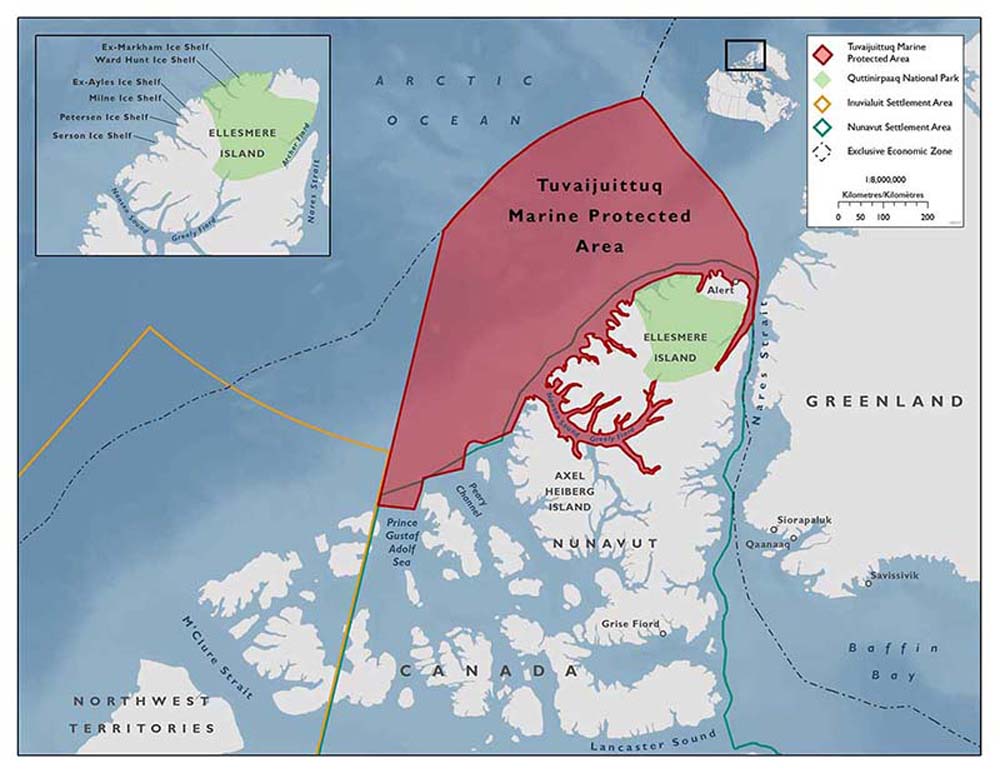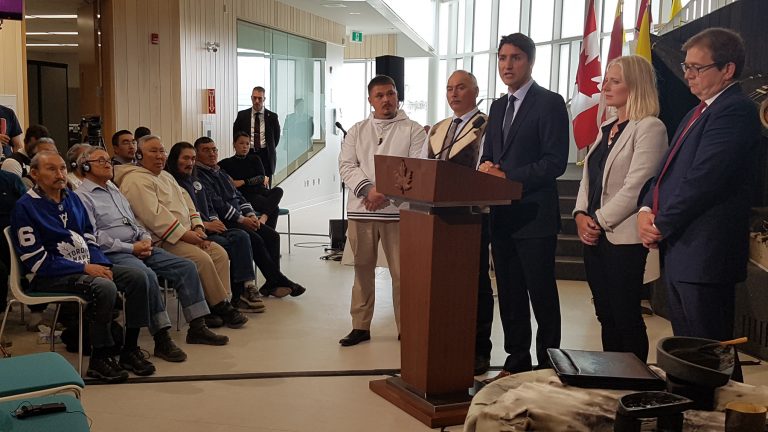In visit to Nunavut, Trudeau announces protections for Canada’s last-ice area
Two Arctic reserves protect more 427,000 square kilometers — 165,000 square miles — of Nunavut waters.

Canada’s federal government has announced a new conservation area off the northwest coast of Ellesmere Island in Nunavut.
Prime Minister Justin Trudeau travelled to Iqaluit on Thursday, Aug. 1, to announce the creation of Tuvaijuittuq Marine Protected Area. Tuvaijuittuq, which in English means “the place where the ice never melts,” is also known the “last-ice area,” as it’s expected to retain year-round sea ice until 2050, even as sea ice declines elsewhere in the Arctic.
Trudeau’s visit also marked the completion of the Tallurutiup Imanga National Marine Conservation Area through an Inuit impact and benefit agreement signed on Thursday morning.
Together, these areas cover more than 427,000 square kilometers (about 165,000 square miles), which means Ottawa has now met its goal to protect 10 percent of Canada’s marine areas by 2020.
The protection status prevents any new activity in those areas for up to five years, through Inuit can still harvest from either region.
“By protecting these vital areas, we are safeguarding our environment for future generations while advancing Inuit self-determination and preserving Inuit cultural practices, languages, and customs,” Trudeau said at the Aug. 1 press conference, held at Nunavut Arctic College.

The prime minister’s visit also comes with news of funding related to those protected areas: $190 million over seven years to build harbours, food-processing facilities and a training centre in the five closest communities: Grise Fiord, Resolute Bay, Arctic Bay, Pond Inlet and Clyde River.
The IIBA for both protected areas aims to promote Inuit stewardship, providing an additional $55 million for Inuit training and employment.
“Finally, Inuit have the tools to do the important work of being the eyes and the ears of [these areas],” said Qikiqtani Inuit Association president P.J. Akeeagok.
Akeeagok presented the prime minister with a marble carving of an Inuk hunter holding a harpoon over a narwhal, which he said should serve as a reminder of “the connection that Inuit have to this region.”
During this visit to Nunavut, the prime minister has faced some criticism over the frequency of visits to the territory, compared to that of former prime minister Stephen Harper, who made a point of spending a week in the North each summer.
But Trudeau urged Nunavummiut to look at the substance of the work his government has done in the North, especially through the Inuit-Crown Partnership Committee established in 2017.
“There is a relationship now between the Crown and Inuit based on respect and partnership,” Trudeau told reporters on Thursday morning.
The most recent evidence of that is the government’s apology for how it mismanaged the tuberculosis epidemic among Inuit between the 1940s and 1960s, along with a commitment to eradicate the disease from the North by 2030.
But, Trudeau added, “there is an awful lot more to do.”